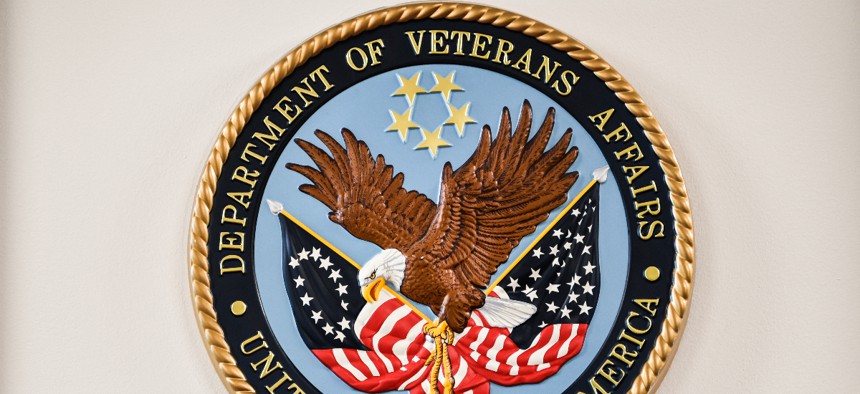VA Announces Winners of $20M Challenge to Prevent Veteran Suicides

Salwan Georges/The Washington Post via Getty Images
The 10 winners of the VA’s Mission Daybreak challenge developed innovative solutions that leveraged technology, artificial intelligence and mobile apps to help reduce the number of veteran suicides.
The Department of Veterans Affairs on Thursday announced the 10 winners of its Mission Daybreak challenge, a $20 million initiative designed to use innovative solutions to help reduce veteran suicides.
Mission Daybreak is a component of VA’s 10-year strategy for preventing veteran suicide and aligns with the White House’s November 2021 strategy for reducing military and veteran suicide. The VA’s 2022 annual report on veteran suicide prevention found that veteran suicides and suicide rates decreased in 2019 and 2020—the last two years for which mortality data was available—but identified 6,146 veteran suicide deaths in 2020.
VA launched Mission Daybreak in May 2022 and said that it received “more than 1,300 innovation submissions from veterans, veteran service organizations, community-based organizations, health technology companies, startups and universities—with solutions ranging from lethal means safety concepts, to targeted virtual care programs, to other promising suicide prevention solutions that offer healing and recovery to veterans.”
Dr. Matthew Miller, executive director for VA suicide prevention, told reporters during a media roundtable that the department’s suicide prevention efforts are grounded in three beliefs: that suicide is preventable, that it requires a public health approach and that everyone has a role to play in suicide prevention. He said that Mission Daybreak supports these core tenets because it “brings clinical, community, policy and research backgrounds, in context, into innovation and then redeploys innovation back into clinical, community, policy and research settings across the nation and around the world.”
The VA previously announced its 30 Mission Daybreak finalists in September, with each of the phase one recipients receiving $250,000 and advancing to a virtual accelerator program as part of phase two. An additional 10 applicants received a promise award of $100,000. As part of phase two, the finalists presented their solutions to a group of investors, stakeholders and partners during a pitch event in November.
In its official announcement, VA said the two first-place winners of Mission Daybreak were Stop Soldier Suicide’s Black Box Project—which identifies and analyzes data “from digital devices of veterans who died by suicide to develop machine learning models that can identify never-before-known risk patterns”—and Televeda’s Project Hózhó, which is “the first mental health app and comprehensive operational plan for American Indian and Alaska Native populations.” Stop Soldier Suicide and Televeda were each awarded $3 million.
“We’re incredibly honored to receive this landmark award, which builds on VA’s long history of advancing health innovation,” Stop Soldier Suicide CEO Chris Ford said in a statement. “Together, Stop Soldier Suicide, VA and the other outstanding awardees will advance our nation’s efforts to dramatically reduce the veteran suicide rate this decade.”
VA also awarded $1 million each to three second-place winners—ReflexAI, Sentinel and Battle Buddy—and $500,000 each to five third-place winners—Even Health, NeuroFlow, Overwatch Project, OxfordVR and Team Guidehouse.
Sara Holoubek, the CEO of Luminary Labs and the prize administrator for Mission Daybreak, said VA anticipates “that there will be some type of engagement as the teams develop their solutions” moving forward.
“Every team is at a different stage of maturity, and so the requirement at this stage was really to develop a plan for integration,” she added. “And so based on the plan itself, and its ambitions, it may be appropriate to partner with a particular facility or maybe conduct further research. It really depends on where they are in their own progression.”






